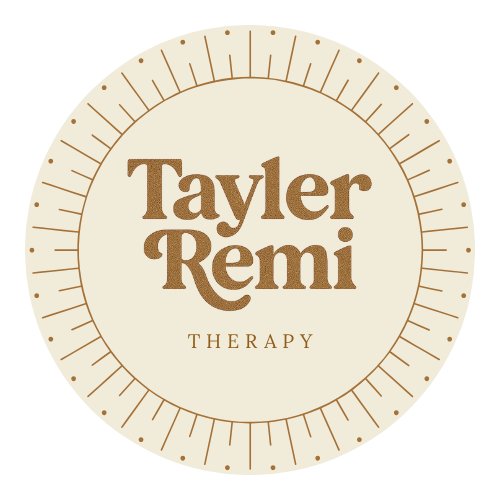
LGBTQ+ & GSRD‑Affirming Therapy in Manchester & Online

“We are powerful because we have survived.”
— Audre Lorde
You might be here because you're…
Tired of hiding, shrinking, or performing to be accepted by family, partners, or community
Carrying grief - for family who couldn’t love all of you, for relationships that broke under pressure, or for parts of yourself you had to silence to survive
Unlearning shame around gender, sexuality, body, neurodivergence, or desire, and longing for a space where none of it needs fixing
Burned out from caregiving, activism, surviving systemic harm, or always being the one others depend on
Longing for connection, joy, or softness, but unsure how to trust it or believe it’s really yours
Wrestling with ambivalence about love, sex, intimacy, or identity, and needing space to figure it out without pressure
Navigating cultural, religious, or racialised pressures shaping who you’re allowed to be and how you’re seen
Exhausted by discrimination, anti-trans violence, biphobia, racism, or public narratives that dehumanise and exhaust you

Where we might begin
-
Exploring gender, pronouns, transition, dysphoria, or euphoria
Living in the in-between: nonbinary, fluid, questioning, evolving
Holding queer, bisexual, pansexual, or neuroqueer experiences without “not queer enough” fears
Navigating desire, touch, intimacy, or pleasure
Sitting with ambivalence, contradiction, or “I’m still figuring it out”
-
Grieving family rupture, chosen family loss, or community breakdown
Holding collective grief and rage from anti-LGBTQ+ violence or legislation
Mourning what never got to happen - parenthood, transitions, desires, or dreams
Living with anticipatory grief around illness, disability, aging, or loss in queer/trans bodies
-
Naming sexual, physical, emotional, or systemic harm inside or outside queer spaces
Processing microaggressions, harassment, or boundary violations
Healing relational trauma, rupture, or betrayal in community
Addressing shutdown, dissociation, hypervigilance, or chronic survival states
Reckoning with reproductive trauma, medical harm, or institutional violence
-
Navigating anxiety, depression, suicidal thoughts, or self-harm
Struggling with body image, eating, dysphoria, or gendered body distress
Healing from burnout - whether from activism, caregiving, perfectionism and people-pleasing, or the constant work of staying safe
Exploring chronic illness, disability, body diversity, or navigating ableism and fatphobia
Finding safer, more affirming relationships to sex, embodiment, and self-expression
-
Unlearning shame and internalised phobias
Building relational boundaries, trust, and intimacy - including in ENM, kink, or queer relationships
Repairing after friendship or community rupture
Creating spaces of queer belonging, celebration, and resistance
Allowing yourself to be fluid, ambivalent, unfinished - and still worthy

LGBTQ+ and GSRD therapy
My approach
You don’t have to explain, justify, or educate here; I already speak your language. As a therapist, queerness isn’t something I add onto the work; it’s part of how I live, think, and connect.
I work with people across queer, trans, nonbinary, bisexual, gay, lesbian, asexual, pansexual, questioning, poly, kinky, sex-working, neurodivergent, disabled, and relationship-diverse experiences - not as identities to fix, but as parts of your full, complicated, brilliant human self.
In relation to transness, I hold a clear affirming stance: trans women are women, trans men are men, nonbinary people exist - these identities are not new or up for debate, but worthy of respect, care, and belonging, without conditions.
I understand that what brings you here isn’t just personal; it’s shaped by the world you’re surviving. Heteronormativity, cisnormativity, mononormativity, white supremacy, ableism, fatphobia, religious trauma - these live in the body, the nervous system, the relationships we long for and struggle in.
I know therapy itself can carry harm, especially if you’ve been dismissed, judged, or had your identity pathologised. Here, you get to name mistrust, power, rupture, fear - and we’ll make space for all of it.
I am a proud member of
LGBTQ+ & GSRD Therapy FAQs
-
Yes. I work with trans, non-binary, gender non-conforming, and questioning clients at all stages of experience.
My stance is clear and unwavering: trans women are women, trans men are men, non-binary people exist. You are seen and valid here, without question.
-
Yes. Therapy itself can carry harm, especially for LGBTQ+, queer, and GSRD clients. You are always safe to name mistrust, rupture, fear, or past experiences here - including if something I do or say feels off, misses you, or unintentionally causes harm.
We can name how power, care, or identity have been mishandled, whether inside or outside this room, and I will stay engaged and accountable in that process.
-
Yes. Kink, ethical non-monogamy, and sex work are not pathologies here. They are part of the relational, erotic, or survival realities you may bring.
I hold an affirming stance: pro-ethical non-monogamy, pro-safe kink, and pro-decriminalisation of sex work.
You can bring the complex, joyful, tender, or conflicted parts of these experiences without judgment.
-
No. You can be questioning, fluid, evolving, ambivalent, or just curious. You don’t need to have it all figured out - we’ll start wherever you are.
You can use the language that feels right for you, even if you’re not sure it’s the “correct” language. I’m not here to correct or judge; it’s all part of the process of self-discovery.
-
Good therapy is about fit and trust. I’m a cis woman, and while I work affirmingly with trans and non-binary clients, I also recognise that some needs - like transition-specific support - may be best held by a therapist with certain lived experiences.
This isn’t rejection; it’s part of ethical care. Whether you’re looking for therapy online across the UK or in Manchester, I’m always happy to recommend trusted trans and non-binary therapists from my network.
We’ll explore this together during the consultation, so you can make an informed choice before we begin.
-
A GSRD therapist works affirmingly with people across Gender, Sexual, and Relationship Diversity (GSRD) - including queer, LGBTQ+, polyamorous, kinky, non-monogamous, and sex-working clients.
This means I don’t just “accept” or “tolerate” these experiences - I understand the unique contexts, joys, and challenges they bring. It’s a space where you can bring all of who you are without needing to explain, defend, or educate - whether you want to explore identity, relationships, trauma, joy, desire, or burnout.
Need more information? Check out the FAQ page below for details on fees, cancellations, payments, and how to book a free consultation.

